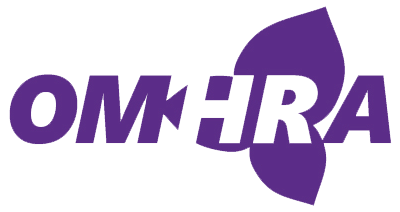
Whether it’s understanding the market, developing innovative and thoughtful benefits packages, or ensuring your colleagues feel safe and secure, emotional intelligence skills have a lot to offer.
By Eric Kasoyaga
One of the biggest hurdles for employers is finding the right talent to fit within their organization. Oftentimes, employers end up competing for the same talent when looking to fill a highly technical position especially in a tight labor market. Small businesses that have fewer employees and less annual revenue than bigger corporations can be at a disadvantage in the recruiting process since they’ve less internal resources to compete with larger companies for talent.
Based on our 25 years of experience of delivering leadership development services and working with human resource leaders within organizations in various industries and sizes, we’ve gained insights on how organizations may be able to set themselves up for success in recruiting the right people.
Below are six tips that may help you the next time you’re competing for talent to join your organization. You’ll notice that many of our ideas are rooted in the scientifically validated EQ-i 2.0 model of emotional intelligence.
- Positive company culture: employees prefer working in organizations that have a positive culture. This means embodying cultural and psychological safety. It also means showing up as your whole selves and caring for colleagues and their wellbeing outside of work, forgiving mistakes and not assigning blame, and prioritizing trust and connection. This means having strong emotional intelligence competencies.
- Empowering employees through training and upskilling: this includes on the job training for their particular role, but also providing employees with opportunities to take on additional training courses outside of work that is aligned with their personal development goals.
- Providing flexibility and work life balance: this is a growing trend especially as a result of the pandemic as employees prefer a hybrid work schedule of working remotely and at the office. This reduces the amount of stress associated with having to commute everyday to work, and wasting valuable time commuting to work. This is big bonus for many prospective team members.
- Social responsibility: in the EQ-i 2.0 model this is defined as the ability to contribute to society, one’s social group, and to the welfare of others. Having a company with a clearly shared purpose helps with this. Also, having a clear vision towards making the world a better place, outside of work, and providing employees with opportunities to contribute their efforts towards social causes that matter to them can be huge. This can include allowing employees to take paid time off work to participate in causes that they care about.
- Mentorship and guidance: this enables employees to know how they’re performing in their role, areas to improve in, and the resources that are available for them to help them perform better at their job. Feedback opportunities can include one on one discussions with their direct reports, but also for senior management reviews including the EQ 360. Using the EQ 360 can help team members explore who and how they’re being and the impact they’re having on colleagues and job performance. And of course, the best leaders have high emotional intelligence.
- Innovative benefits: no matter how cool your organization is, you still need to have strong reality testing skills when it comes to understanding the market. Good packages are also innovative when it comes to comprehensive dental and medical benefits, and opportunities to access health and wellness coaching services through the company.
The Emotional Intelligence Training Company is celebrating 25 years of leadership training, coaching, and certification in the EQ-i 2.0 / EQ 360.
Presented by

Archives
Categories
- Attraction and Recruitment
- Benefits
- Celebrating Success and Recognition
- Change Management
- Conflict Resolution and Coaching
- Culture
- Diversity, Equity and Inclusion
- Emotional Intelligence
- Employee Engagement
- Employee Performance
- Labour Disruption
- Mentoring
- OMHRA activities
- OMHRA Events
- Psychological health and safety of the HR professional
- Recruitment
- Recruitment and Retention
- Retention
- Uncategorized
- Unique ideas for recruiting in a tight job market
- Wellness
Recent Posts
- How Leadership Development Coaching Provides Better Outcomes
- Better Leadership: Focus on a Coach Approach
- Creating a Psychologically Safe Workplace
- Group Health Insurance – The Impact of Preferred Pharmacy Networks on Employees’ Mental Health
- Provide Real Support For Your Mid-Career Team’s Psychological Resilience
